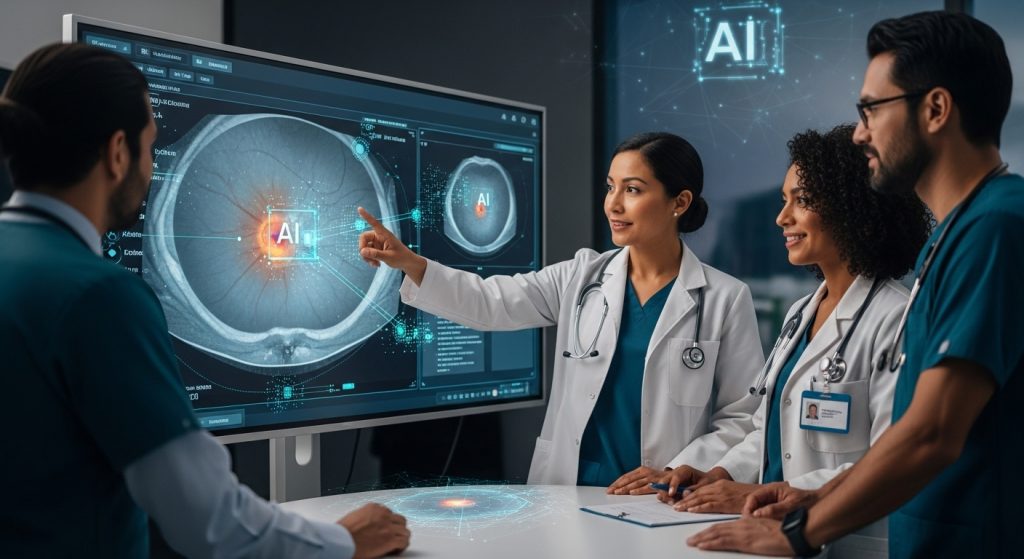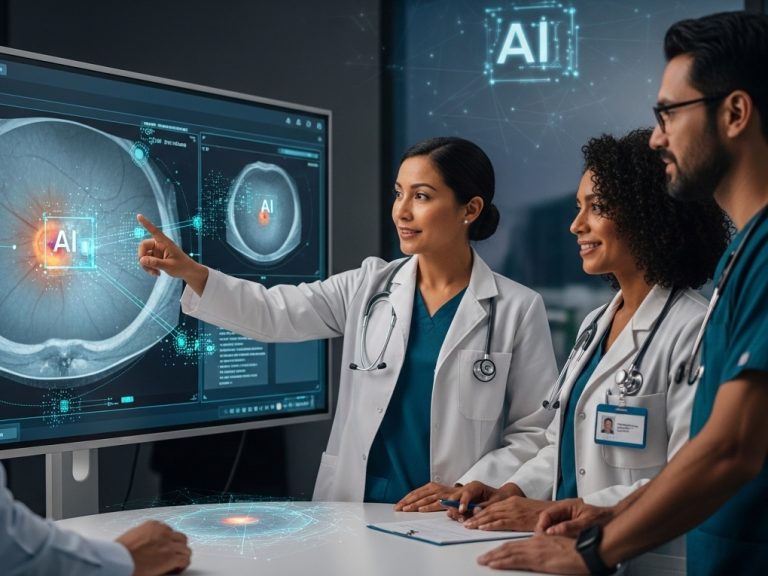AI is revolutionizing diagnostics by significantly improving accuracy and speed across a spectrum of medical conditions. Studies indicate that AI frequently surpasses traditional diagnostic methods in detecting diseases such as breast cancer, melanoma, diabetic retinopathy, and pneumonia. These AI-driven tools enhance imaging interpretation, biosignal analysis, and clinical decision support, leading to improved patient outcomes and a reduction in diagnostic errors. For example, AI can detect subtle abnormalities like lung nodules as small as 3 millimeters with over 95% sensitivity and identify microcalcifications in mammography, thereby improving cancer detection rates. Beyond imaging, AI demonstrates the capability to predict disease diagnoses many years in advance by identifying “signatures” from medical data, even before symptoms manifest, for conditions like Alzheimer’s, chronic obstructive pulmonary disease (COPD), and kidney disease. It has also proven effective in detecting epilepsy brain lesions previously missed by human radiologists. Furthermore, companies like Qure.ai offer WHO-evaluated AI solutions that support quick and accurate diagnoses and treatment decisions for Tuberculosis, Silicosis, and Pediatric Tuberculosis, facilitating global access to care and real-time disease surveillance.
The capabilities described here represent a fundamental shift from reactive to proactive healthcare. The ability of AI to outperform traditional methods in early detection of various cancers and diseases , and to predict disease diagnoses years before symptoms appear for conditions such as Alzheimer’s , signifies a move beyond merely diagnosing existing conditions more accurately. Instead, it enables the prediction and potential prevention of diseases. This has profound implications for public health strategies, transitioning from a reactive “treat-when-sick” model to a proactive “intervene-before-onset” paradigm. For Hispanic communities, who may experience a higher burden of chronic diseases and face barriers to early screening, this proactive approach, if implemented equitably, could significantly reduce health disparities and improve long-term community health outcomes.
While AI demonstrates remarkable accuracy in diagnostics , it is crucial to understand that AI is not replacing doctors but augmenting their capabilities. Reports indicate that AI can identify approximately two-thirds of abnormalities that doctors might miss, while acknowledging that a significant proportion remain challenging for AI to detect. The combination of AI’s findings with human oversight and expertise holds the potential to accelerate both diagnosis and treatment. Physicians’ expertise remains indispensable in interpreting AI findings within the broader clinical context. This indicates that AI handles high-volume, pattern-recognition tasks, freeing clinicians to focus on complex cases, patient-specific context, and nuanced interpretation. This elevates the cognitive demands and value of human expertise, suggesting a need for new training curricula that emphasize AI literacy and human-AI collaboration for medical professionals.






